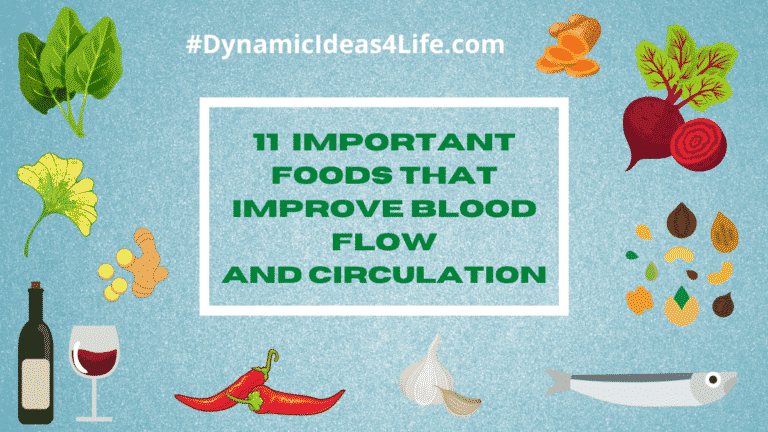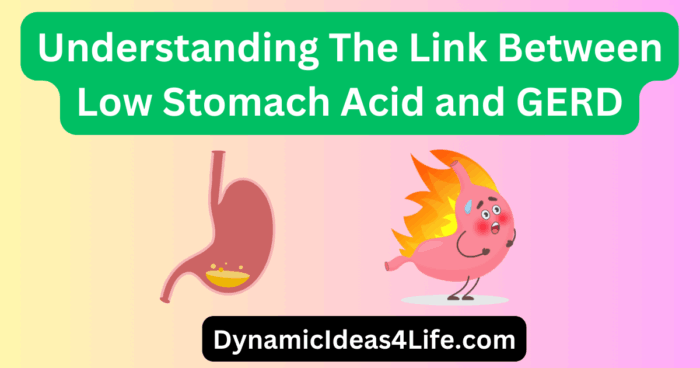
As we delve into the fascinating world of our Digestive Health, we will be unravelling some complex interactions within our system that are often misunderstood. Gastroesophageal Reflux Disease, commonly known as GERD, has become a household name owing to its increasing prevalence.
With symptoms often causing great discomfort and disruption to daily life, understanding this condition has never been more critical. Similarly, the concept of stomach acidity and its critical function in our digestion process remains less discussed, yet it holds a significant influence on our overall health.
In this light, we aim to break down the mystery surrounding the Link Between Low Stomach Acid and GERD, its correlation with stomach acid levels, and the potential ways to manage and treats these conditions.
So, let’s continue with this blog…
Understanding GERD and Its Symptoms
Acid Reflux and GERD are basically the same things. Differentiating between the two is mostly down to the severity of the condition and how much this happens.
Understanding Gastroesophageal Reflux Disease (GERD)
Gastroesophageal Reflux Disease (GERD) is a chronic gastric disorder that is marked by the frequent return of stomach acid into the oesophagus—a tube that connects the mouth and stomach. This backwash, commonly referred to as acid reflux, can cause irritation to the lining of the oesophagus and lead to the discomfort familiar to those with GERD.
The common symptoms of GERD include repeated bouts of heartburn, meals regurgitating into the mouth, a sour or bitter taste at the back of your mouth, as well as difficulties or even pain when swallowing.
Given its prevalence and potential complications, GERD is a significant health concern all across the globe.
GERD: Risk Factors and Prevalence
Risk factors for GERD are many and encompass;
- Lifestyle Choices,
- Biological Characteristics, and more.
- These can range from Obesity
- and Pregnancy
- to Smoking,
- Large Meal Consumption, and
- Certain Medications.
As a health condition, GERD affects a significant portion of the population – Including many that may not even realise they have this condition (a lot of people!), but In spite of this, it is intriguing to note that a common cause many people with GERD might not know about is they have lower than normal amounts of stomach acid.
The Paradox: Low Stomach Acid and GERD
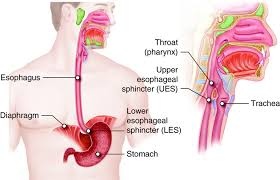
When contemplating GERD, the attention is frequently focused on high levels of stomach acid, as one would assume more acid would result in an increased likelihood of it refluxing.
However, research continues to reveal complexities in this relationship, as low stomach acid (hypochlorhydria) has also been associated with GERD.
The role of stomach acid extends beyond digestion. It aids in the defence against foodborne diseases and the absorption of various nutrients. When levels are low, digestion can be compromised, leading to an overgrowth of harmful bacteria.
This bacterial abundance can increase intra-abdominal pressure and lead, ultimately, to the development of acid reflux and GERD.
Moreover, low stomach acid can lead to a sluggish closure of the lower oesophageal sphincter—a sort of valve that prevents the backwash of stomach acid into the oesophagus. This slow closure facilitates the entry of even the minimal acid present into the oesophagus, leading to the symptoms associated with GERD.
Diagnosis and Concerns
GERD is typically diagnosed through a detailed examination of symptoms, lifestyle factors, and through specific diagnostic tests such as an endoscopy or a pH monitoring test. Concerns arise from long-term, unmanaged GERD, as chronic acid reflux can lead to the development of alarming complications, such as an oesophageal ulcer, stricture, or even Barrett’s oesophagus—a condition that raises the risk for oesophageal cancer.
In general, you’d expect a condition like Gastroesophageal Reflux Disease (GERD) to stem from having too much stomach acid, not too little. However, despite this seeming oddity, there exists an intricate and somewhat paradoxical relationship between low stomach acid and GERD.
Thus, striking a balance with our stomach acid levels is crucial not only for overall digestive well-being but also for staving off disorders like GERD.
How Stomach Acidity Works
Understanding the Function of Stomach Acid in Digestion
Commonly referred to as gastric acid, stomach acid is intrinsically linked to our digestion. This liquid, made up of;
- Hydrochloric Acid,
- Potassium Chloride, and
- Sodium Chloride,
is produced by the stomach lining. It’s chief role is to break down food, especially proteins, into simpler forms.
This process makes the absorption of nutrients in the intestines far more efficient.
Furthermore, stomach acid serves a dual purpose—it’s also a safeguard against harmful bacteria and other microbes that we inadvertently ingest.
By neutralising these potential threats, it prevents any untoward infections. Aside from this, it also instructs other digestive enzymes in the stomach to transform the food into a semi-fluid consistency known as chyme.
Once in this form, the food can then proceed to the small intestine with ease.
Maintaining Stomach Acid Levels
The stomach constantly balances the production and release of stomach acid. Normally, when a person eats, the presence of protein in food signals the stomach to produce more gastric acid.
Conversely, when the stomach is empty, acid production decreases. This careful regulation is essential to prevent damage to the delicate lining of the stomach and avoid various health problems.
Fluctuating Stomach Acid Levels
At times, the balance of stomach acid can be disrupted by factors like stress, diet, age, or certain medications. This can result in an increase or decrease in stomach acid levels.
Overproduction of stomach acid can lead to gastroesophageal reflux disease (GERD), where acid from the stomach flows back into the esophagus, causing heartburn and possible damage to the esophageal lining.
Low Stomach Acid and GERD
Surprisingly, not just high, but low stomach acid levels can also contribute towards GERD. When there is inadequate acid in the stomach, the lower esophageal sphincter (LES)—the muscle that closes off the esophagus from the stomach—might not get the signal to shut.
This can then allow stomach contents to reflux back into the esophagus.
However, more research is needed to fully understand this relationship of low stomach acid with GERD. Commonly, symptoms of low stomach acid and high stomach acid can appear quite similar, which might contribute to misdiagnosis.
Therefore, it’s essential to consult with a healthcare provider for appropriate evaluation.
Understanding the Implications of Stomach Acid Imbalance
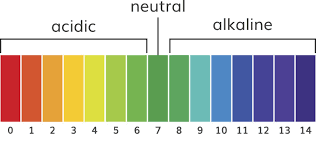
An Imbalance in Stomach Acid Levels over a sustained period can, unfortunately, contribute to plenty of health problems. In addition to GERD, low stomach acid levels, medically referred to as hypochlorhydria, can obstruct proper digestion.
This leads to the likely event of nutritional deficiencies, given the reduced absorption of essential nutrients.
On the opposite end of the scale, excessive stomach acid can wear away your stomach lining. This can result in ailments such as stomach ulcers, significant discomfort, and in severe cases, even gastric bleeding.
In SUMMARY, it’s crucial to note the importance of Stomach Acid in our Digestive System. Its balance, or rather imbalance, can significantly impact our overall digestion health. It might be tricky to discern whether the problem lies within low or high stomach acid levels, given the similar symptoms they present.
For this reason, seeking professional medical advice for an accurate diagnosis and appropriate treatment is always advised. You can find out further Information in my blog post HERE (How To Test For Low Stomach pH Levels)
Correlation Between Low Stomach Acid and GERD
Exploring the Connection Between Stomach Acid and GERD
Gastroesophageal Reflux Disease (GERD) represents a frequent digestive condition that occurs when stomach acid, and in some instances, stomach content, inadvertently flows back into your food pipe (oesophagus). This process is often referred to as reflux, and it has the potential to irritate and damage the lining of your oesophagus.
The repercussions of this include prevalent symptoms such as severe heartburn and indigestion, making it an uncomfortable issue to contend with.
Low Stomach Acid and GERD
Even though the concept seems paradoxical, it is indeed possible for low levels of stomach acid to contribute to GERD. Low stomach acid, also known as hypochlorhydria, can occur due to ageing, the use of certain medications, or as a symptom of various health conditions.
When stomach acid is low, the food in your stomach is not effectively broken down and can put pressure on the lower oesophageal sphincter (LOS), leading to reflux.
Scientific Studies: Linking Low Stomach Acid and GERD
Several scientific studies have found a correlation between low stomach acid and GERD. Research, for example, indicates that people who take proton pump inhibitors (PPIs) to reduce stomach acid can experience an exacerbation of GERD symptoms over time. {R] This is because PPIs lower stomach acid levels, which can lead to an increase in intra-abdominal pressure and delay gastric emptying – factors that can contribute to GERD.
Another study found that older adults with hypochlorhydria were more likely to experience GERD symptoms, suggesting a direct correlation between lower stomach acid levels and the exacerbation of GERD symptomatology.
Impact of Low Stomach Acid on the Digestive Process
A well-functioning stomach needs sufficient acid levels to maintain a sterile environment and to optimally digest food. When Stomach Acid Levels are low, bacteria can multiply, and the stomach cannot effectively break down food. This can cause food to sit in the stomach for too long, building up pressure and leading to the opening of the LOS (Lower Oesophageal Sphincter).
Once the LOS is open or weakened, acid can escape into the oesophagus, causing the characteristic burning sensation associated with GERD.
Furthermore, undigested food from a lack of stomach acid can ferment in the gut, causing bloating and increasing intra-abdominal pressure, which can also contribute to the development of GERD symptoms.
Role of Proper Diagnosis and Treatment in GERD
Understanding the relationship between Low Stomach Acid and GERD can play a key role in its effective management. Rather than focusing solely on reducing stomach acid, it may be more beneficial to address the underlying root cause of low stomach acid for some individuals. Proper diagnosis and personalised treatment plans can significantly improve the quality of life for those living with GERD.
In Summary
It can be observed that a correlation indeed exists between Low Stomach Acid, often referred to as hypochlorhydria, and gastroesophageal reflux disease (GERD).
Despite common misconceptions, one potential solution to alleviate the discomfort of GERD could lie in addressing the inadequacy of stomach acid.
Of course, it remains crucial to seek the guidance of healthcare professionals to ensure accurate diagnosis and appropriate treatment.
Management and Treatment Options
Understanding the Link Between Low Stomach Acid and GERD
Conventionally, it is believed that the trigger for gastroesophageal reflux disease (GERD) is an overabundance of stomach acid. However, an increasing number of cases indicate that the lack of stomach acid, also known as hypochlorhydria, can be a significant contributor to GERD.
Hypochlorhydria can impede the digestive process, which consequently leads to fermentation and gas production – creating increased pressure on the lower oesophageal sphincter (LES). The heightened pressure causes the LES to permit leakage of acid into the oesophagus, thereby eliciting the characteristic burning sensation associated with GERD.
Increasing Stomach Acid Naturally
Naturally increasing stomach acid can alleviate GERD symptoms by speeding up the digestive process and preventing the build-up of gas that can pressure the LES. There are several ways to do this. For example, incorporating apple cider vinegar or lemon juice into your diet can help kickstart acid production.
Another option is to take a digestive enzyme supplement or an HCL supplement to increase stomach acid.
Dietary changes can also minimise GERD episodes. Food with high sugar content can feed harmful bacteria in the gut, leading to more gas and pressure on the LES.
Thus, a diet low in sugar and processed foods can help symptoms.
Lifestyle Modifications
Implementing certain lifestyle changes can manage GERD. Weight loss, if overweight, helps by reducing intra-abdominal pressure. Regular exercise promotes healthy digestion and reduces stress, a known trigger of GERD symptoms.
Eating smaller, more frequent meals rather than large meals allows the stomach to digest food more easily.
Avoiding eating three hours before bedtime helps ensure that food is well digested before lying down. Raising the head end of your bed can use gravity to keep stomach contents where they belong – in the stomach. Refraining from wearing tight-fitting clothes that can press on the stomach, causing acid to press against the LES, can also be beneficial.
Medical Treatment Options
If dietary changes and lifestyle modifications aren’t enough, medical treatments may be the next step. Over-the-counter products like antacids can provide temporary relief from GERD symptoms, but they don’t address the root problem.
For chronic GERD, proton pump inhibitors (PPIs) may be prescribed. While these reduce stomach acid levels, in the long term, they can exacerbate the problem of hypochlorhydria.
H2 blockers also reduce stomach acid but can have side effects like headaches and constipation.
In some cases, surgery may be considered for severe GERD unresponsive to medical treatments. It can improve the function of the LES and reduce the chance of acid reflux.
However, these medical intervention should be the last resort and only used under specialist guidance. Ultimately, the focus should be on identifying and addressing underlying factors causing low stomach acid and GERD. Medical management should be part of a holistic treatment strategy, which includes dietary changes and lifestyle modifications.
*One Suggestion For Treatment of Low Stomach Acid We Recommend Is Betaine HCL. We Suggest a Pepsin Free Supplement That Does Not Affect Natural Enzyme Production (Find Out More About This HERE)
In Conclusion
Gaining an in-depth understanding of GERD and the role of stomach acid in this equation can empower individuals to take proactive steps regarding their digestive health. Given the complexity of our bodies, unravelling the relationship between low stomach acid and GERD advantageously illuminates the path towards effective treatment measures.
Armed with this knowledge, one can capitalise on various dietary adjustments, lifestyle modifications, and medical treatments to negotiate the challenges posed by these conditions. As we strive for optimal health, let us not overlook the influence of these seemingly minute aspects of our well-being, bearing in mind that prompt action and informed decisions are the cornerstones of illness prevention and management.
I shall finish this article up here but if you would like to check out more of our posts about Low Stomach Acid (Hypochlorhydria) CLICK HERE<<
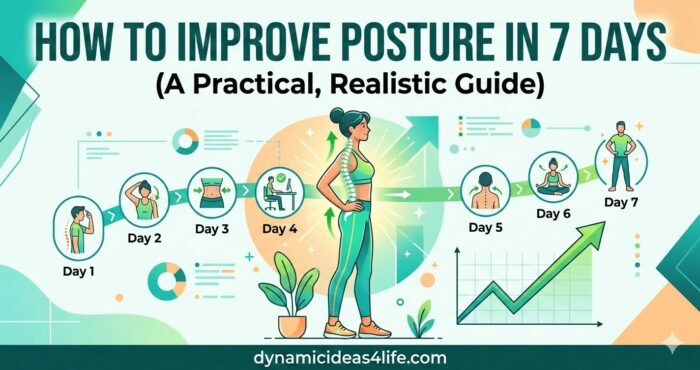

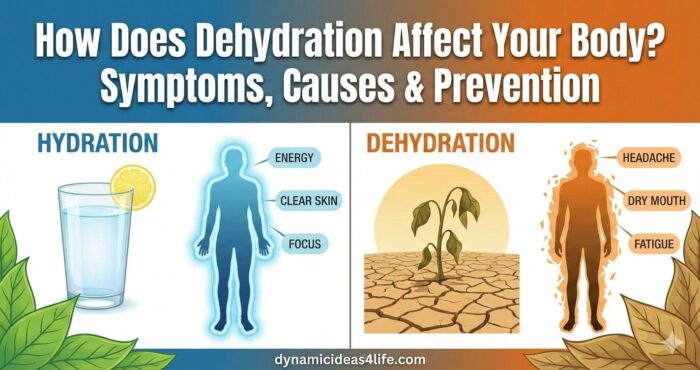



Anxiety and Depression BiOptimizers blood pressure supplements blood sugar control blood sugar support supplements cognitive function digestive enzymes Digestive Enzymes Supplement Digestive Health digital products Dr Sam Robbins Exercise Gut Health Gut Health While Travelling Health Tips for Travelling Healthy Living heart health HFL How To Lower Cholesterol insulin resistance joint health supplement Keto keto dieting Keto Diet Weight Loss leaky gut supplements leptin resistance Magnesium deficiency Matt Gallant mental health multivitamins Nootopia Nootropics Probiotics Probiotic Supplements reverse type 2 diabetes stress and anxiety stress relief vitabalance vitapost Wade Lightheart weight loss articles weight loss diet plans weight loss product reviews weight loss supplements weight loss tea





